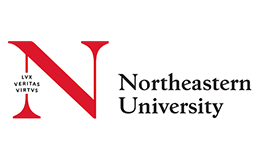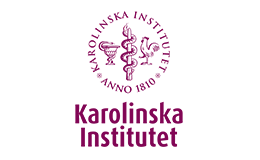What is Power Engineering in Germany ? What Is The Future Scope ?
Is There A Career In Power Engineering In Germany ?

What is Power Engineering in Germany?
Power engineering in Germany is a long-term profession that allows you to work on internationally renowned projects. It is also an occupation with high personal and social value where, in our opinion, the future looks brightest. What are the qualifications? What does a power engineer do? How much do they earn in Germany?
Power engineering is the study and application of electricity and its resulting effects on the physical world. It encompasses everything from designing power systems to managing power grids. In Germany, power engineering is a highly respected discipline, with many top universities and institutes offering accredited courses. Power engineers can expect good job prospects in both the public and private sectors.
Power engineering in Germany
In Germany, power engineering is a major field of engineering that deals with the design, construction, and management of power systems. Power plants, transmission lines, substations, and other infrastructure are all part of the power engineering field. Engineers in this field must have knowledge in physics, mathematics, and engineering mechanics. They also need to be able to work with computers and understand how electricity works.
The power engineering field is growing rapidly in Germany due to the increasing demand for renewable energy sources such as solar and wind. In addition, the country is upgrading its old power infrastructure to meet the needs of a modern economy. This growth has created opportunities for engineers in the field, and there are currently many jobs available inGermany's power engineering sector.
The Job of a Power Engineer
Power engineering is a highly specialized field that helps to maintain and operate power plants, transmission lines and other infrastructure. The job of a power engineer typically involves working with the technical aspects of power generation, transmission and distribution systems. Power engineers also may be involved in research and development or in helping to oversee the operations of power plants.
In Germany, power engineering is a highly respected profession. The country has a long history of energy production and technology innovation, which has helped make Germany one of the world's leading providers of clean energy. As a result, power engineers are in high demand throughout the country. In addition to securing employment with major power companies, many power engineers also work for independent firms that provide consulting services to power producers.
If you're interested in pursuing a career in power engineering, you'll need to have a degree in an engineering discipline such as electrical or mechanical engineering. You'll also need experience working with technology related to electricity generation, transmission and distribution systems. In addition to possessing strong technical skills, you'll need good problem-solving abilities and the ability to work independently.
Power engineering is a demanding field, but it offers great opportunities for career growth and personal fulfillment. If you're interested in pursuing a career
Career Opportunities for Power Engineers
Power engineering is an important industry in Germany, and there are many opportunities for career growth in this field. Here are just a few of the most common career paths for power engineers:
-Power plant operator: This is the most common path for power engineers, and these individuals oversee the operations of power plants. They must have a great deal of experience and knowledge, as well as be able to make quick decisions on how to best run the plant.
-Systems engineer: This is another common path for power engineers, and these individuals design and operate systems that manage power generation or transmission. They must have a good knowledge of electrical engineering principles, as well as have strong problem-solving skills.
-Power system engineer: Similar to systems engineers, power system engineers design and operate systems that manage power distribution. However, their focus may be on specific areas of the power grid such as substations or transmission lines.
-Power generation engineer: This is a relatively new path for power engineers, and they focus on developing new sources of energy such as renewable energy resources. They may also work on improving existing sources of energy, or designing new ways to harness energy.
Salary, Pay, and Other Incomes from a German Perspective
Power engineering is a growing field in Germany, with plenty of opportunities for career growth. According to the latest statistics from the German National Statistical Office (Destatis), power engineering generated €15.4 billion in economic output in 2017, accounting for 6.9% of Germany's GDP.
Here are some key points about the salary and pay structure in this field:
Salaries vary depending on experience and qualifications, but the median salary for power engineers across all industries was €87,000 in 2017. The highest salaries can be found in the technology sector, where the median salary was €115,000. Salaries tend to be lower in the public sector and in small businesses.
Germany has a number of tax benefits for people working in power engineering, including a tax-free pension scheme and tuition benefits for students studying to become power engineers. In addition, there are a number of social welfare programs available to help power engineers with financial difficulties.
If you're looking to enter this field in Germany, it's important to have a strong academic record and good technical skills. You'll also need good communication and presentation
How does one become a power engineer?
Power engineering is a field of engineering that deals with the generation, transmission, distribution, and use of electricity. In order to become a power engineer, one typically needs an undergraduate degree in engineering or a related field. After completing an accredited power engineering program, one may seek a professional certification. Additionally, many power engineers work as apprentices under experienced professionals.
Conclusion
Power engineering is an important and booming field in Germany, as the country's demand for energy continues to grow. With its many renewable resources and a history of engineering excellence, Germany is well-positioned to lead the way in power generation and transmission.
You Can Refer
Top Courses in Electrical Engineering in USA
Top Courses in Electrical Engineering in UK
Top Courses in Electrical Engineering in Canada
Top Courses in Electrical Engineering in Australia
Top Courses in Electrical Engineering in Sweeden





































.png)









.png)
























.png)















.png)





